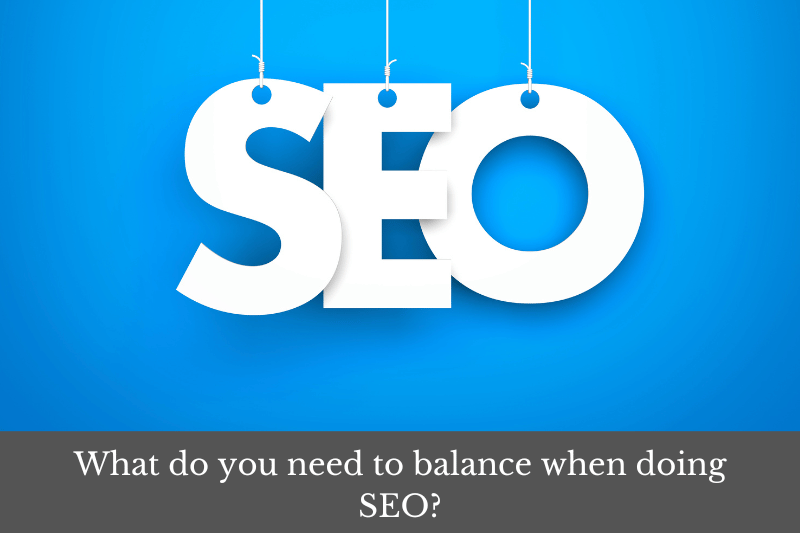When doing SEO (Search Engine Optimization), there are several factors that need to be balanced in order to achieve success. SEO is a complex and ever-changing field, and it’s important to understand the various elements that need to be balanced in order to create an effective SEO strategy. Here are some of the key factors that need to be balanced when doing SEO:
What do you need to balance when doing SEO?
- Keyword relevance vs. search volume: One of the most important factors to consider when doing SEO is the relevance of the keywords you choose to target. It’s important to choose keywords that are relevant to your business and the content on your website. However, it’s also important to consider the search volume of those keywords. High search volume keywords may seem attractive, but they are also likely to be highly competitive, making it harder to rank for them. Balancing keyword relevance and search volume is important when choosing which keywords to target.
- On-page optimization vs. user experience: On-page optimization is the process of optimizing individual web pages in order to rank higher and earn more relevant traffic in search engines. However, it’s important to balance on-page optimization with user experience. A website that is optimized for search engines but provides a poor user experience will ultimately lead to high bounce rates and low engagement. Therefore, it’s important to ensure that your website is both optimized for search engines and provides a good user experience.
- Quality content vs. keyword stuffing: Content is a key element of SEO, and it’s important to create high-quality, valuable content that provides value to your target audience. However, it’s also important to include keywords in your content in order to help search engines understand what your content is about. Balancing quality content with keyword stuffing is important in order to avoid penalties from search engines and maintain a good user experience.
- Backlinks vs. quality: Backlinks are one of the most important ranking factors in SEO, and it’s important to have a strong backlink profile in order to rank higher in search results. However, it’s also important to ensure that your backlinks are high-quality and relevant to your website. A backlink profile that includes low-quality or spammy backlinks can harm your website’s ranking and reputation. Balancing backlinks with quality is important in order to maintain a strong and healthy backlink profile.
- Technical optimization vs. content optimization: Technical optimization refers to the process of optimizing the technical aspects of your website, such as site speed, mobile responsiveness, and website structure. Content optimization, on the other hand, refers to the process of optimizing individual pages and content for search engines. Balancing technical optimization with content optimization is important in order to ensure that your website is optimized for both search engines and users.
- Short-term vs. long-term goals: SEO can provide both short-term and long-term benefits. Some tactics, such as keyword stuffing or spammy link building, may provide short-term gains but can ultimately harm your website’s ranking and reputation in the long run. Balancing short-term gains with long-term goals is important in order to create a sustainable and effective SEO strategy.
Summary
In conclusion, when doing SEO, it’s important to balance a variety of factors in order to achieve success. Balancing keyword relevance with search volume, on-page optimization with user experience, quality content with keyword stuffing, backlinks with quality, technical optimization with content optimization, and short-term gains with long-term goals are all important factors to consider. By balancing these elements, you can create an effective and sustainable SEO strategy that will help your website rank higher and earn more relevant traffic over time.

